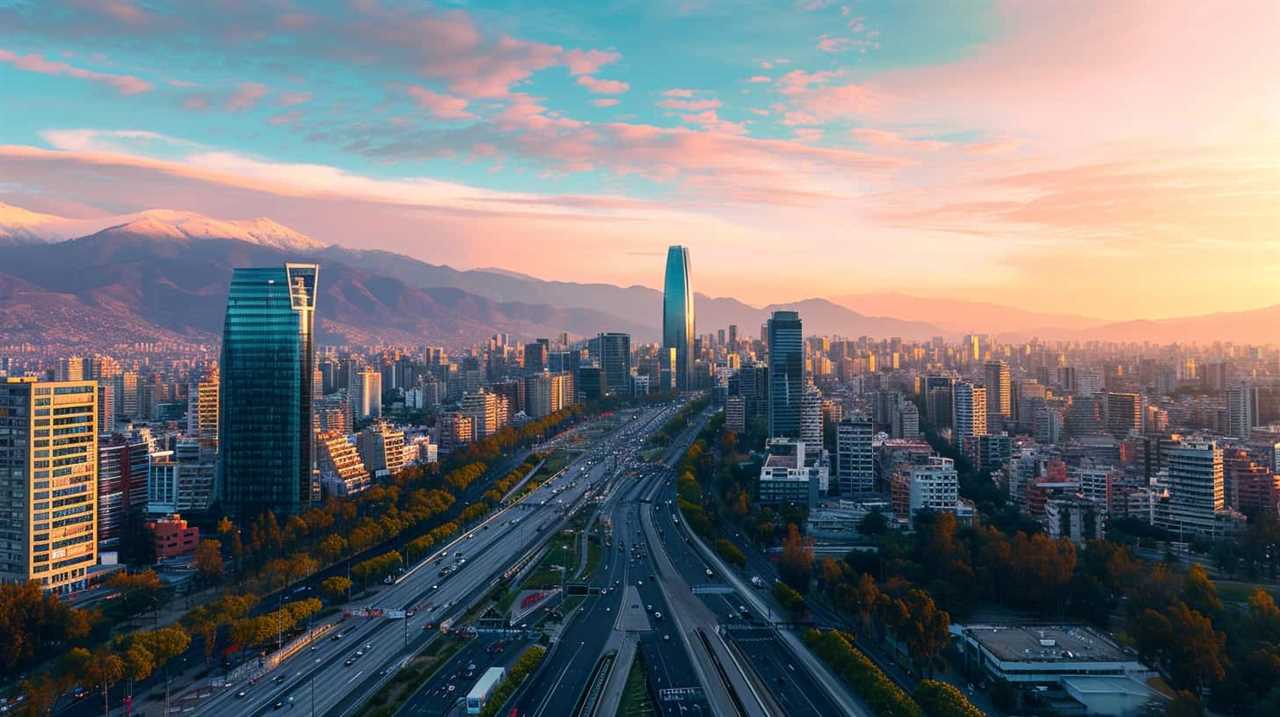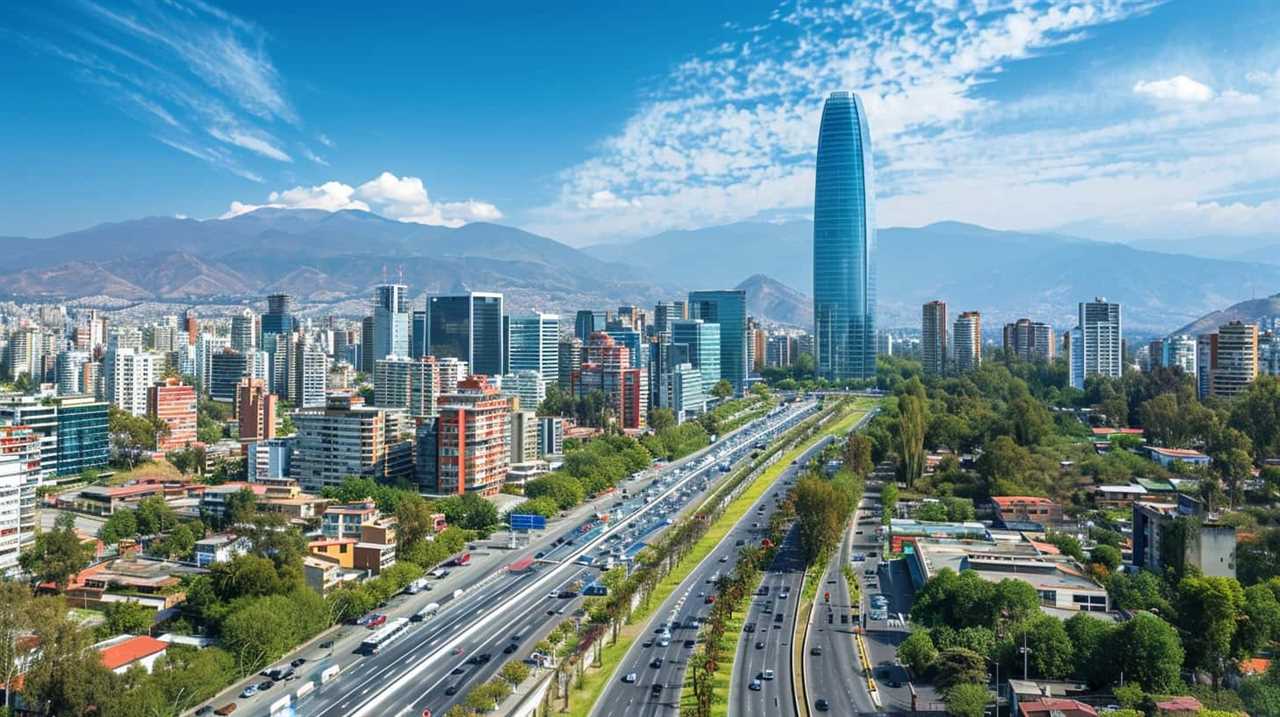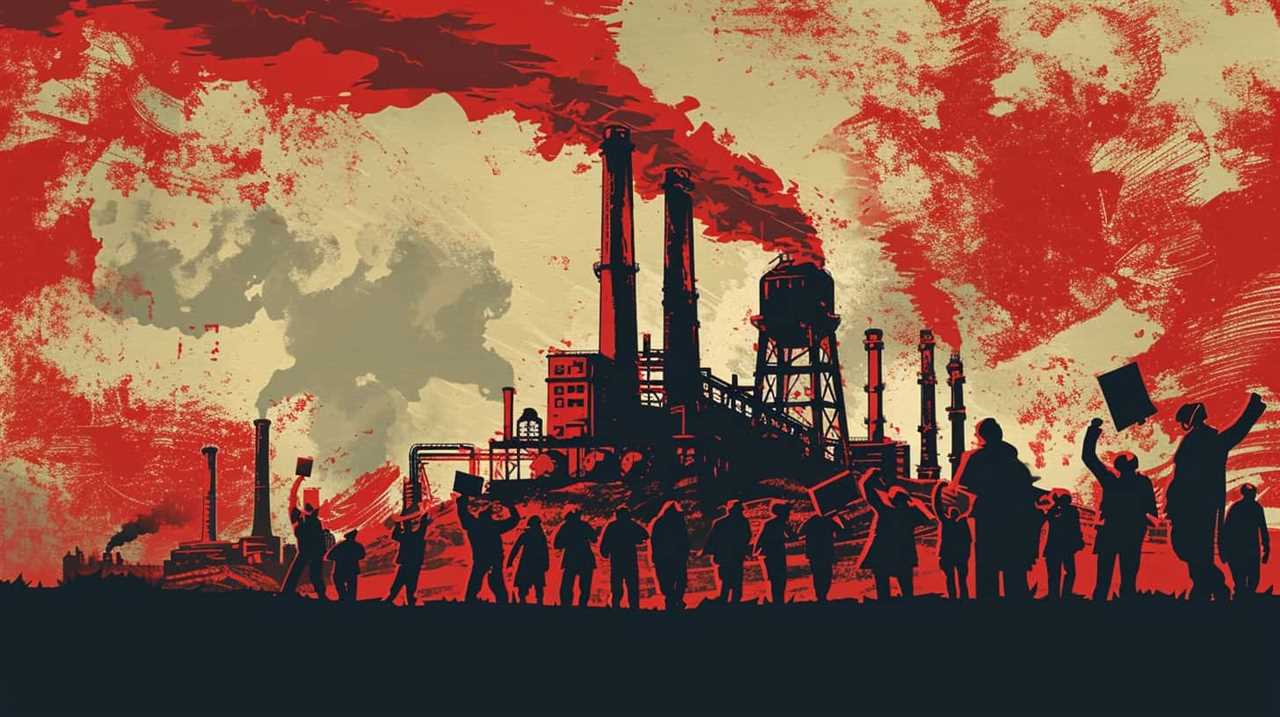Economic Theories and Philosophers Quotations
What Has Neoliberalism Done to the World Economy?

As we explore the intricate web of the world economy, it becomes clear that neoliberalism has woven itself into its very fabric, like a vibrant thread illuminating new pathways and possibilities.
Neoliberalism, with its emphasis on free markets, deregulation, and privatization, has undoubtedly made significant impacts on our global economic landscape. Through its principles and policies, it has reshaped the dynamics of global trade, influenced income inequality, and fostered the rise of financialization.
However, as we delve deeper into this topic, we must also acknowledge the critiques and alternative perspectives that have emerged in response to neoliberalism’s effects.
Join us on this innovative journey as we uncover the multifaceted implications of neoliberalism on the world economy.

Key Takeaways
- Neoliberalism has led to significant global trade expansion by reducing trade barriers and encouraging international competition.
- The principles of neoliberalism have facilitated economic growth and prosperity in emerging economies like China and India.
- However, neoliberal policies have contributed to income inequality, concentrating wealth in the hands of a few.
- Neoliberalism has also caused an increase in poverty rates and hindered social mobility, particularly through the dismantling of welfare states and erosion of workers’ rights.
Origins of Neoliberalism
The origins of neoliberalism can be traced back to the mid-20th century, when economists and policymakers began advocating for a shift towards free markets and limited government intervention. In order to understand the historical context of neoliberalism, it’s essential to recognize the prevailing economic climate at the time.
The post-World War II era was marked by a desire for economic stability and growth, as countries sought to rebuild their economies and avoid the mistakes of the past. This led to a rejection of the interventionist policies that had characterized the earlier part of the century, such as protectionism and central planning.
The proponents of neoliberalism argued that free markets, with minimal government interference, would lead to increased efficiency, innovation, and economic prosperity. They believed that by reducing government regulation and allowing market forces to dictate economic outcomes, countries could achieve higher levels of productivity and wealth. This belief was rooted in the idea that individuals, motivated by self-interest, would make rational decisions that would ultimately benefit society as a whole.
These early advocates of neoliberalism set the stage for the key principles that would come to define the ideology. By emphasizing the importance of individual freedom, free markets, and limited government intervention, they laid the groundwork for the neoliberal policies that would shape the global economy in the decades to come.

Key Principles of Neoliberalism
To understand the impact of neoliberalism on the world economy, it’s crucial to examine the key principles that have guided this ideology. Neoliberalism is based on the belief in free markets, limited government intervention, and individual freedom. These principles have had a profound effect on democracy and social services.
One of the key principles of neoliberalism is the promotion of free markets. Neoliberals argue that market forces should be allowed to determine prices, allocate resources, and drive economic growth. This belief has led to the deregulation of industries and the reduction of trade barriers, resulting in increased globalization and the expansion of markets.
Another principle of neoliberalism is limited government intervention. Neoliberals advocate for minimal state involvement in the economy, arguing that government intervention stifles competition and innovation. This has led to policies such as privatization, where state-owned enterprises are sold to private investors, and austerity measures, which aim to reduce government spending and debt.
However, neoliberalism’s impact on democracy and social services has been heavily debated. Critics argue that neoliberal policies have led to growing income inequality, as wealth becomes concentrated in the hands of a few. They also argue that the reduction of government intervention has resulted in the erosion of social safety nets, such as healthcare and education.

Impact on Global Trade
Neoliberalism’s principles of promoting free markets and limited government intervention have significantly impacted global trade. The emphasis on reducing barriers to trade and encouraging international competition has led to a significant expansion of global trade flows over the past few decades. According to the World Trade Organization (WTO), the volume of world merchandise exports has increased more than sevenfold between 1990 and 2019, from $4.1 trillion to $18.9 trillion. This growth in global trade has played a crucial role in stimulating economic growth and development, as it has provided countries with access to larger markets and a wider range of goods and services.
The impact of neoliberalism on global trade has been particularly evident in emerging economies, which have experienced rapid economic growth by integrating into global supply chains and exporting their products to international markets. For example, countries like China and India have seen their exports surge in recent years, contributing to their impressive economic performance. This demonstrates how neoliberal policies have facilitated the integration of these economies into the global trading system, leading to increased economic growth and prosperity.
However, it’s important to note that the impact of neoliberalism on global trade hasn’t been uniform across all countries. While some have benefited greatly from increased trade, others have struggled to compete and have experienced negative effects on their domestic industries. This has led to concerns about job losses and income inequality, which we’ll explore further in the subsequent section.
Influence on Income Inequality
Our analysis reveals that neoliberal policies have had a significant impact on income inequality. Neoliberalism, characterized by deregulation, privatization, and free market ideology, has led to a concentration of wealth in the hands of a few, exacerbating poverty and hindering social mobility.

Income inequality has reached alarming levels in many countries under neoliberal policies. According to data from the World Bank, the richest 1% of the global population owns more than twice the wealth of the bottom 50%. This staggering wealth disparity is a direct result of neoliberal policies that prioritize profit maximization and disregard the social consequences.
The impact on poverty is undeniable. A study by Oxfam revealed that since the 1980s, the rise of neoliberalism has caused poverty rates to increase in many countries. The dismantling of welfare states and the erosion of workers’ rights have left vulnerable populations without adequate social protection, perpetuating cycles of poverty.
Moreover, neoliberal policies have also limited social mobility, making it harder for individuals to move up the socioeconomic ladder. The emphasis on market competition and the erosion of labor protections have disproportionately affected low-income workers, hindering their ability to improve their economic status.
Neoliberalism and Financialization
Financialization, as a key aspect of neoliberalism, has had a profound impact on society. One of its major consequences is the exacerbation of economic inequality.

The financial sector has grown disproportionately, leading to a concentration of wealth and power in the hands of a few, while the majority struggle to make ends meet.
This has widened the gap between the rich and the poor, creating a social divide that threatens the stability and well-being of our economies.
Financialization’s Impact on Society
As we delve into the impact of financialization on society within the context of neoliberalism, it becomes evident that the interplay between these two forces has transformed the world economy.
Financialization, characterized by the increasing dominance of financial markets and institutions, has had profound effects on labor and democracy.

One major impact on labor is the rise of precarious work and the erosion of worker protections.
The financialization of the economy has also led to a shift in power dynamics, with financial institutions exerting significant influence over government policies and decision-making processes.
This has resulted in the erosion of democracy, as the interests of financial elites often take precedence over the needs and interests of the general population.
As we explore the subsequent section on neoliberalism and economic inequality, we’ll see how financialization has contributed to the widening gap between the rich and the poor.

Neoliberalism and Economic Inequality
Continuing our exploration of the impact of financialization on society, neoliberalism and financialization have played a significant role in exacerbating economic inequality. Here are four key ways in which this has occurred:
- Concentration of wealth: Neoliberal policies have led to a disproportionate accumulation of wealth among the top 1% of the population, widening the wealth gap and contributing to increased inequality.
- Erosion of social safety nets: The emphasis on market-driven solutions and the reduction of government intervention has weakened social safety nets, leaving vulnerable populations without adequate support.
- Decline in social mobility: Neoliberalism has hindered social mobility, making it harder for individuals from lower-income backgrounds to climb the economic ladder and improve their living standards.
- Financialization of the economy: The focus on financial markets and the prioritization of shareholder value has led to a shift in resources towards the financial sector, diverting investments away from productive sectors of the economy and exacerbating inequality.
Overall, neoliberalism and financialization have had a profound impact on wealth distribution and social mobility, contributing to a more unequal society.
To promote innovation and address these issues, it’s crucial to reassess the current economic system and explore alternative approaches that prioritize inclusive growth and equitable opportunities.
Privatization and Deregulation
Privatization and deregulation have significantly transformed the world economy. These two aspects of neoliberalism have been instrumental in driving innovation and economic growth across various sectors.

Privatization, the transfer of state-owned enterprises to private ownership, has allowed for increased efficiency, competition, and innovation. By introducing market forces into previously state-controlled industries, privatization has led to improved productivity and better allocation of resources. It has also encouraged foreign investment, creating new opportunities and stimulating economic growth.
Deregulation, on the other hand, involves the removal of government regulations and controls on business activities. This has allowed for increased flexibility and dynamism in the global economy. Deregulation has played a vital role in promoting competition and innovation by reducing barriers to entry and fostering a more entrepreneurial environment. It has resulted in the emergence of new industries and the expansion of existing ones, leading to job creation and higher living standards.
These trends in privatization and deregulation have had a profound impact on the world economy. According to the World Bank, the number of privatizations worldwide increased from 100 in 1990 to over 2,500 in 2018. Similarly, deregulation efforts have been widespread, with many countries implementing reforms to facilitate business growth and attract investment. These changes have been particularly beneficial in sectors such as telecommunications, transportation, and energy, where privatization and deregulation have led to increased competition, improved services, and lower prices for consumers.
In conclusion, privatization and deregulation have been instrumental in transforming the world economy. These policies have promoted competition, innovation, and economic growth, resulting in improved productivity, job creation, and higher living standards. While they’ve faced criticism for their potential to exacerbate inequality and social disparities, their overall impact on the global economy can’t be denied.

As we move forward, it’s essential to strike a balance between the benefits of privatization and deregulation and the need for responsible governance to ensure inclusive growth and sustainable development.
Critiques and Alternatives to Neoliberalism
Critiques of neoliberalism center around its impact on inequality, with critics arguing that it has exacerbated wealth and income disparities. Data shows that in many countries where neoliberal policies have been implemented, the gap between the rich and the poor has widened significantly.
As alternatives to neoliberalism, some propose a more interventionist approach, such as increasing regulations and government intervention in the economy to ensure more equitable outcomes. Others advocate for a focus on social welfare programs and investment in education and healthcare to address inequality and promote inclusive growth.
Neoliberalism’s Impact on Inequality
Over the past few decades, the world economy has witnessed a surge in inequality, largely due to the implementation of neoliberal policies. Neoliberalism’s effect on social mobility and its impact on poverty have been significant factors contributing to this increasing inequality. Here are four key aspects to consider:

- Widening income gap: Neoliberal policies have favored the wealthy, leading to a disproportionate concentration of wealth among a small percentage of the population.
- Erosion of social safety nets: Neoliberalism often promotes deregulation and cuts to social programs, leaving vulnerable populations without adequate support.
- Decline in workers’ rights: Neoliberal policies tend to prioritize market efficiency over workers’ rights, resulting in stagnant wages and a decline in job security.
- Privatization of public services: The push for privatization under neoliberalism has led to increased costs for essential services like healthcare and education, further exacerbating inequality.
To address these challenges, alternative approaches that prioritize social equity and sustainable development are needed. These alternatives should focus on inclusive policies, equitable distribution of wealth, and investments in education and social infrastructure.
Potential Alternatives to Neoliberalism
We believe it’s essential to explore potential alternatives to neoliberalism in order to address the shortcomings of this economic ideology.
One alternative that has gained traction is a more active role of government in the economy. Proponents argue that governments should play a larger role in regulating markets, redistributing wealth, and providing public goods and services. This would involve implementing policies that prioritize social and environmental objectives, rather than solely focusing on economic growth.
Another alternative is the establishment of robust social safety nets. This would ensure that individuals and communities have access to essential resources and services, such as healthcare, education, and unemployment benefits. By providing a safety net, societies can mitigate the negative impacts of economic shocks and promote social cohesion.

Ultimately, exploring these alternatives can lead to a more inclusive and sustainable economic system.
Frequently Asked Questions
How Has Neoliberalism Affected Social Welfare Programs and Public Services?
Neoliberalism’s impact on social welfare programs and public services is evident through privatization and marketization. These trends have led to a decrease in government intervention and increased reliance on market forces, resulting in mixed outcomes for social welfare and public service provision.
What Role Does Neoliberalism Play in Environmental Degradation and Climate Change?
Neoliberalism’s role in environmental degradation and climate change is significant. The prioritization of economic growth and privatization has led to increased exploitation of natural resources, exacerbating inequality and contributing to the current climate crisis.
How Does Neoliberalism Impact Developing Countries and Their Economies?
Neoliberalism’s impact on developing countries and their economies is significant. It has led to increased poverty and inequality, as market liberalization often benefits the wealthy while neglecting the needs of the poor.

What Are the Consequences of Neoliberalism on Workers’ Rights and Labor Conditions?
Worker exploitation and income inequality are two consequences of neoliberalism on workers’ rights and labor conditions. These issues have been exacerbated as neoliberal policies prioritize profits over people, leading to a decline in workers’ bargaining power and the erosion of labor protections.
Has Neoliberalism Contributed to the Concentration of Wealth and Power Among a Few Elite Individuals or Corporations?
Neoliberalism has indeed contributed to the concentration of wealth and power among a few elite individuals or corporations. This has resulted in increased inequality and poverty, with negative consequences for the majority of the population.
Conclusion
In conclusion, neoliberalism has had a profound impact on the global economy. It has shaped trade patterns, income inequality, financialization, and the privatization and deregulation of industries.
While neoliberalism has been praised for its focus on free markets and economic growth, it has also faced criticism. Many argue that it exacerbates inequality and concentrates wealth in the hands of a few.

As we reflect on the consequences of neoliberal policies, it is important to ask ourselves: Is this the world economy we want to continue building?
Lauren’s talent in writing is matched by her passion for storytelling. Her love for books and deep understanding of culture and entertainment add a distinct flavor to her work. As our media and press contact, Lauren skillfully bridges the gap between afterQuotes and the broader media landscape, bringing our message to a wider audience.
Economic Theories and Philosophers Quotations
Unraveling Kahneman’s Cognitive Biases: A How-To Guide

Welcome to our guide on understanding Kahneman’s cognitive biases!
In this innovative how-to guide, we will explore the fascinating world of cognitive biases, as discovered by renowned psychologist Daniel Kahneman.
As a team of experts, we have compiled a comprehensive breakdown of these biases, providing you with the knowledge and tools to navigate them effectively.
From the anchoring bias to the overconfidence bias, we will delve into each bias, uncovering their impact on our decision-making processes.

By understanding these cognitive biases, you will gain a fresh perspective on how your mind works, enabling you to make more informed and innovative choices.
So, let’s embark on this enlightening journey together and unlock the secrets of Kahneman’s cognitive biases!
Key Takeaways
- Understanding cognitive biases is crucial for making informed and innovative choices.
- Anchoring bias heavily relies on the first piece of information and can lead to irrational judgments.
- Confirmation bias perpetuates stereotypes and hinders innovation, but overcoming it opens us to new ideas.
- Availability bias relies on readily available information and can lead to biased judgments, but awareness and seeking additional information can help mitigate it.
Overview of Kahneman’s Cognitive Biases
What are the key cognitive biases outlined by Kahneman?
Understanding cognitive biases is crucial in decision-making processes, particularly for those seeking innovation. Daniel Kahneman, a renowned psychologist and Nobel laureate, identified several cognitive biases that affect our judgment and decision-making abilities. These biases can significantly impact the quality of our choices and hinder our ability to think objectively.

One of the most well-known biases is the confirmation bias, which is our tendency to seek out information that confirms our pre-existing beliefs and ignore evidence that contradicts them. This bias can prevent us from considering alternative perspectives and hinder innovation.
Another important bias is the availability heuristic, where we rely on easily accessible information when making judgments or decisions. This can lead to overlooking important but less readily available information and can limit our ability to think creatively.
Understanding these cognitive biases has practical applications in decision-making. By being aware of these biases, we can actively work to mitigate their effects and make more informed and innovative choices. For example, we can consciously seek out diverse perspectives, challenge our own assumptions, and actively consider a range of possibilities before making a decision.
Anchoring Bias
We can explore the cognitive bias known as the anchoring bias, which influences our decision-making process. The anchoring bias occurs when we rely too heavily on the first piece of information we receive, and it then serves as a reference point for all subsequent decisions. This bias can have a significant impact on our judgment, leading us to make decisions that aren’t necessarily rational or objective.

To understand the effects of anchoring bias on decision making, let’s take a look at a real-life example. Imagine you’re shopping for a new laptop. The first store you visit has a high-end laptop priced at $2,000. This initial price sets a reference point in your mind. When you visit another store and see a laptop priced at $1,500, you may perceive it as a bargain, even though it may not necessarily be the best value for your money.
Another real-life application of anchoring bias can be seen in negotiations. The first offer made in a negotiation often serves as an anchor, influencing the rest of the negotiation. If the initial offer is unreasonably high or low, it can shift the entire bargaining range in favor of the party who made the anchor.
Confirmation Bias
Continuing our exploration of cognitive biases, let’s delve into the next subtopic: confirmation bias. This bias refers to our tendency to seek out and interpret information in a way that confirms our preexisting beliefs or hypotheses. It can often lead to a lack of objectivity and an unwillingness to consider alternative viewpoints.
- Selective Exposure: We’re more likely to expose ourselves to information that aligns with our existing beliefs, while avoiding information that challenges them. This reinforces our confirmation bias and can create an echo chamber effect.
- Cognitive Dissonance: Confirmation bias can also lead to cognitive dissonance, which is the discomfort we feel when we hold conflicting beliefs or when new information challenges our existing beliefs. To reduce this discomfort, we tend to ignore or dismiss contradictory information.
- Reinforcing Stereotypes: Confirmation bias can perpetuate stereotypes by causing us to selectively remember and interpret information that supports these stereotypes, while ignoring evidence to the contrary. This can hinder progress and innovation by limiting our ability to see beyond the confines of preconceived notions.
Understanding confirmation bias and its impact is essential for fostering innovation. By actively seeking out diverse perspectives and challenging our own beliefs, we can overcome this bias and open ourselves up to new ideas and possibilities.

Availability Bias
Moving forward, it’s important to address the impact of availability bias on our decision-making. Availability bias refers to our tendency to rely on readily available information when making judgments or decisions, rather than considering all relevant information. This bias can have a significant impact on the quality of our decisions, as it can lead to inaccurate assessments and flawed reasoning.
The impact of availability bias is particularly evident when we encounter vivid or memorable information that easily comes to mind. Such information tends to have a disproportionate influence on our decision-making, even if it isn’t representative of the overall reality. This can lead to biased judgments and suboptimal choices.
To overcome availability bias, it’s essential to be aware of its presence and actively seek out additional information. By consciously considering a wider range of perspectives and data, we can minimize the influence of availability bias on our decision-making. Additionally, employing systematic decision-making processes, such as gathering data from multiple sources and considering alternative viewpoints, can help mitigate the impact of availability bias.
In the subsequent section about the ‘framing effect,’ we’ll explore another cognitive bias that plays a crucial role in shaping our decision-making processes.

Framing Effect
To explore the cognitive bias known as the framing effect, we’ll delve into its impact on our decision-making processes. The framing effect refers to the psychological influence that the presentation or framing of information can have on our perception and subsequent decisions.
Here are three key aspects of the framing effect:
- Decision making: The way information is presented can greatly influence the decisions we make. Whether it’s through emphasizing potential gains or losses, the framing effect can sway our choices. For example, if a product is presented as having a 90% success rate, we’re more likely to perceive it positively and make a purchase.
- Cognitive biases: The framing effect is just one of several cognitive biases that affect our decision making. Understanding these biases, including the framing effect, can help us become aware of our own thought processes and make more informed choices.
- Marketing strategies: The framing effect is widely recognized in the field of marketing. Companies often use different frames to present their products or services in a way that appeals to their target audience. By understanding the framing effect, marketers can tailor their communication strategies to maximize their impact.
Sunk Cost Fallacy
The sunk cost fallacy is a cognitive bias that occurs when individuals make decisions based on the emotional attachment they’ve developed towards their previous investments, rather than rational decision-making.
It’s important to distinguish between rational decision-making, which focuses on future outcomes, and the sunk costs, which are past investments that can’t be recovered.

Emotional Attachment to Investment
One common cognitive bias that we often fall victim to is our emotional attachment to investments, known as the sunk cost fallacy. This bias occurs when we continue to invest time, money, or resources into something, solely because we’ve already invested a significant amount in it, even if it no longer makes logical sense.
Understanding and overcoming this bias is essential for effective decision-making in the world of investing. Here are three key points to consider:
- Awareness of emotional decision making: Recognize that emotions can cloud our judgment and lead us to make irrational decisions. By acknowledging the influence of emotions on our investment choices, we can strive to make more objective decisions.
- Focus on future prospects: Instead of dwelling on past investments, evaluate the current and future potential of the investment. Consider factors such as market trends, competition, and profitability to determine the best course of action.
- Cut your losses when necessary: Don’t let emotional attachment prevent you from cutting your losses. If an investment isn’t performing well and there are better opportunities available, it may be wise to exit and redirect your resources elsewhere.
Rational Decision-Making Vs. Sunk Costs
How can we avoid falling victim to the sunk cost fallacy and make rational decisions? When it comes to decision-making biases, the sunk cost fallacy is a common pitfall that can hinder us from making rational choices. The sunk cost fallacy occurs when we continue investing time, money, or resources into a failing endeavor simply because we have already invested a significant amount. To overcome this bias, we need to focus on the future outcomes and disregard the past investments. A helpful tool to guide our decision-making process is a rational decision-making framework. By analyzing the potential costs and benefits, considering alternative options, and being aware of our biases, we can make more rational choices. To illustrate this, let’s take a look at the following table:
| Decision Options | Potential Benefits | Potential Costs |
|---|---|---|
| Continue | Potential success | Additional expenses |
| Abandon | Time and resources saved | Feeling of loss |
Loss Aversion
Loss aversion refers to our tendency to strongly prefer avoiding losses over acquiring gains. This cognitive bias can affect our decision-making process by causing us to be risk-averse and overly cautious.

The fear of losing can lead us to make irrational choices and miss out on potential opportunities for growth and success.
Fear of Losing
When it comes to our decision-making process, we often find ourselves gripped by the fear of losing something valuable. This fear of losing, also known as loss aversion, can significantly impact our risk assessment and ultimately influence the choices we make.
Here are three ways in which fear of losing affects our decision-making:
- Overestimating the probability of failure: When we’re afraid of losing, we tend to overestimate the likelihood of failure. This skewed perception can lead us to avoid taking risks altogether, even when the potential gains outweigh the potential losses.
- Emotional bias: Fear of losing can cloud our judgment and lead to emotional decision-making. We may become more willing to make irrational choices to avoid the pain of loss, even if it means missing out on opportunities for growth and innovation.
- Anchoring on past losses: Our fear of losing can be reinforced by past negative experiences. We may anchor our decisions on these losses, which can prevent us from taking calculated risks and exploring new possibilities.
Understanding how fear of losing influences our decision-making can help us overcome its limitations and make more informed choices. By acknowledging and managing this cognitive bias, we can embrace calculated risks and unlock new opportunities for innovation and growth.

Risk Aversion Tendencies
As we navigate our decision-making process, one cognitive bias that significantly influences our choices is our tendency towards risk aversion, also known as loss aversion. Risk aversion refers to the preference for avoiding losses rather than seeking gains. This bias can have a profound impact on our decision-making, particularly in the context of investing.
When it comes to risk aversion in investing, individuals often choose safer investment options with lower potential returns, rather than taking on higher-risk investments that offer the possibility of greater rewards. This behavior stems from our natural inclination to avoid losses and the accompanying negative emotions. However, this risk aversion can sometimes hinder our ability to achieve optimal outcomes.
The table below illustrates the potential outcomes of risk aversion in decision-making:
| Scenario | Potential Gain | Potential Loss |
|---|---|---|
| Risk-averse decision | Modest gains | Avoiding significant losses |
| Risk-seeking decision | High potential gains | Potential significant losses |
| Balanced decision | Moderate gains | Moderate losses |
Understanding our risk aversion tendencies can help us make more informed decisions and strike a balance between seeking gains and avoiding losses. By being aware of this bias, we can take steps to mitigate its effects and make choices that align with our long-term goals.

Halo Effect
Through our cognitive biases, we tend to form positive or negative impressions of individuals or objects based on a single prominent trait, known as the Halo Effect. This bias can have unintended consequences and hinder our ability to make accurate evaluations.
To navigate the Halo Effect, consider the following:
- Awareness: Recognize when the Halo Effect may be influencing your judgment. Be mindful of your tendency to attribute other positive or negative qualities to someone or something based on a single characteristic.
- Diverse evaluation methods: Instead of relying solely on a single trait, use a variety of evaluation methods to gather a more comprehensive understanding. Consider gathering feedback from multiple sources, conducting thorough research, or employing objective assessments.
- Critical thinking: Challenge your initial impressions and analyze the situation or person objectively. Seek out alternative viewpoints and gather additional information to create a more balanced evaluation.
Gambler’s Fallacy
We often fall victim to the Gambler’s Fallacy, a cognitive bias that leads us to believe that past outcomes will influence future probabilities. This fallacy is rooted in our tendency to see patterns where none exist and to assign meaning to random events. When it comes to gambling or making decisions based on probability, the Gambler’s Fallacy can lead us astray.
The Gambler’s Fallacy occurs when we believe that the likelihood of a certain outcome increases or decreases based on previous outcomes. For example, if we flip a coin and it lands on heads five times in a row, we might mistakenly believe that the next flip is more likely to result in tails. This is a fallacy because each coin flip is an independent event and has no bearing on future outcomes.

Understanding the Gambler’s Fallacy is essential for avoiding probability illusions and making informed decisions. Recognizing that past outcomes don’t affect future probabilities allows us to approach gambling, investing, or any decision involving probability with a clear and rational mindset. By understanding the true nature of probability, we can avoid costly mistakes and make more accurate predictions.
Overconfidence Bias
The next cognitive bias we’ll explore is the tendency for individuals to have an inflated sense of confidence, known as the overconfidence bias. This bias leads us to overestimate our abilities and the accuracy of our judgments, which can have a significant impact on decision making.
Here are three key points to consider when it comes to overcoming overconfidence and understanding its impact:
- Self-awareness: Recognizing and acknowledging our own overconfidence is the first step towards overcoming it. We need to actively question our assumptions, seek feedback from others, and constantly evaluate the validity of our beliefs. By being aware of our tendency to be overconfident, we can make more informed decisions and avoid costly mistakes.
- Embrace uncertainty: Overconfidence often arises from a desire for certainty. However, in a rapidly changing and complex world, certainty is often elusive. Embracing uncertainty and being comfortable with ambiguity can help us make more realistic assessments of our abilities and reduce the likelihood of overconfidence bias creeping into our decision making.
- Diversify perspectives: Overconfidence can be mitigated by seeking out diverse perspectives and opinions. By actively seeking input from others with different backgrounds and expertise, we can gain a more comprehensive understanding of a situation and challenge our own biases. This can lead to better decision making and help counteract the impact of overconfidence.
Frequently Asked Questions
What Are Some Real-Life Examples of the Anchoring Bias?
The anchoring bias can have a significant impact on financial decision making, leading us to rely too heavily on initial information. In medical diagnoses, overcoming this bias requires considering a broader range of possibilities.

How Does the Confirmation Bias Impact Decision-Making in the Workplace?
In the workplace, overcoming confirmation bias is crucial for effective decision-making. By recognizing how cognitive biases impact our choices, we can strive for innovation and avoid being trapped by preconceived notions.
Can You Provide Some Strategies to Overcome the Availability Bias in Daily Life?
We can overcome the availability bias in daily life by employing strategies such as seeking out diverse perspectives, gathering more information, and consciously challenging our initial thoughts and assumptions.
What Are the Potential Consequences of Falling Prey to the Framing Effect in Negotiations?
Falling prey to the framing effect in negotiations can have serious consequences. It distorts our perception of options, leading to poor decision-making. We risk losing out on favorable outcomes and settling for less than we deserve.
How Does the Halo Effect Influence Our Perceptions of Others in Social Situations?
The halo effect significantly impacts our social judgments and influence dynamics. It shapes our initial perceptions of others, often leading to biased evaluations and assumptions based on a single characteristic or trait.

Conclusion
In unraveling Kahneman’s cognitive biases, it becomes clear that our minds aren’t as rational as we may think. Anchoring bias, confirmation bias, availability bias, framing effect, loss aversion, halo effect, gambler’s fallacy, and overconfidence bias all shape our decision-making processes.
Understanding and recognizing these biases is crucial for making more informed choices. By shedding light on the quirks of our cognitive machinery, we can strive to overcome these biases and approach decision-making with greater clarity and objectivity.
Lauren’s talent in writing is matched by her passion for storytelling. Her love for books and deep understanding of culture and entertainment add a distinct flavor to her work. As our media and press contact, Lauren skillfully bridges the gap between afterQuotes and the broader media landscape, bringing our message to a wider audience.
Economic Theories and Philosophers Quotations
8 Ways Neoliberalism Reshaped the Global Economy

Ladies and gentlemen, I welcome you to explore the effects of neoliberalism on the global economy. Like a powerful gust of wind changing the shape of a wheat field, this influential ideology has greatly impacted our economic landscape.
In this concise journey, we will uncover eight key ways in which neoliberalism has altered the way economies function. From the deregulation and free trade that have opened up new avenues for innovation, to the privatization of public services that has sparked entrepreneurial spirits, we will delve into the intricate web of neoliberal policies.
Prepare to witness the rise of global interconnectedness, the impact of income inequality, and the influence of corporate power. Together, let us uncover the transformative power of neoliberalism on the world stage.
Key Takeaways
- Deregulation and free trade have led to increased competition and market efficiency, as well as the expansion of international trade and integration of markets.
- The privatization of public services has resulted in greater efficiency and cost-effectiveness, but also raised concerns about accountability and unequal access to essential services.
- Financialization and speculation have contributed to economic instability and risk, concentration of wealth, and widening inequality, highlighting the need for critical examination of its role in the economy.
- The neoliberal policies of deregulation and unchecked risk-taking by financial institutions have led to economic instability, widening income and wealth gaps, and undermined social cohesion and consumer resilience.
Deregulation and Free Trade
Deregulation and free trade have transformed various industries and markets worldwide. The dismantling of regulations and the push towards trade liberalization have been key components of the neoliberal economic agenda.
These policies have aimed to remove barriers and restrictions on businesses, allowing for greater competition and market efficiency.
By dismantling regulations, governments have sought to reduce bureaucratic hurdles that hindered business growth and innovation. This has led to increased flexibility and adaptability within industries, allowing companies to respond more quickly to changing market conditions. Additionally, the removal of regulations has encouraged entrepreneurship and the entry of new players into the market, fostering innovation and driving economic growth.
Trade liberalization, on the other hand, has focused on reducing tariffs, quotas, and other trade barriers between countries. This has resulted in the expansion of international trade and the integration of markets on a global scale. As a result, businesses have gained access to larger customer bases and a wider range of suppliers, leading to increased competition and specialization.
The deregulation and free trade policies haven’t been without their critics. Some argue that these policies have led to the concentration of wealth and power in the hands of a few, while others point to the negative environmental and social impacts of unregulated markets.
However, it’s undeniable that these policies have played a significant role in reshaping the global economy and fostering innovation.
Privatization of Public Services
One significant aspect of neoliberalism’s impact on the global economy is the privatization of public services. Under neoliberal policies, there’s been a trend towards transferring the ownership and control of public services from the government to private corporations. This shift has had both positive and negative effects on service quality and corporate control.
Increased Efficiency: Proponents argue that privatizing public services allows for greater efficiency and cost-effectiveness. Private corporations are driven by profit motives, which can incentivize them to streamline operations and improve service delivery.
Lack of Accountability: However, privatization can also lead to a loss of accountability. Private corporations may prioritize profit over the public interest, potentially resulting in reduced service quality or neglect of underserved communities.
Unequal Access: Another concern is the potential for unequal access to essential services. Privatization may exclude marginalized groups who can’t afford the cost of private services, exacerbating existing inequalities.
Financialization and Speculation
Financialization and speculation, two key aspects of neoliberalism, have had significant impacts on the global economy. One consequence is increased economic instability and risk, as financial markets have become more volatile and prone to crises.
Additionally, financialization has contributed to the concentration of wealth and widening inequality, as speculative activities often benefit a small group of wealthy individuals or institutions at the expense of the broader population.
These effects highlight the need for a critical examination of the role of financialization and speculation in shaping our economic system.
Economic Instability and Risk
How has neoliberalism contributed to the increase in economic instability and risk?
Neoliberalism, with its emphasis on deregulation and free markets, has played a significant role in exacerbating economic volatility and systemic risk. Here are three key ways in which neoliberal policies have contributed to this instability:
- Financialization: Neoliberalism has promoted the expansion of financial markets and the prioritization of profit-driven financial activities. This has led to the emergence of complex financial products and excessive speculation, increasing the potential for market crashes and economic downturns.
- Deregulation: Neoliberal ideology advocates for reduced government intervention and oversight in the economy. While this has allowed for more market freedom, it has also created a regulatory void that can lead to unchecked risk-taking by financial institutions, as seen in the 2008 global financial crisis.
- Inequality: Neoliberal policies often prioritize the interests of the wealthy and corporations, leading to widening income and wealth gaps. This inequality not only undermines social cohesion but also creates economic instability, as it limits the purchasing power and resilience of the majority of consumers.
Wealth Concentration and Inequality
Neoliberal policies have contributed to the concentration of wealth and the exacerbation of inequality through the expansion of financialization and speculation. Financialization refers to the increasing role of financial markets, instruments, and institutions in the economy, while speculation involves the buying and selling of assets with the expectation of making quick profits.
These processes have allowed the wealthy to accumulate vast amounts of wealth, while leaving the majority of the population struggling to keep up. Wealth redistribution and social mobility, which are crucial for a fair and inclusive society, have been hindered by neoliberal policies that prioritize the interests of the wealthy and corporations.
As a result, income inequality has soared and social mobility has declined, making it increasingly difficult for individuals to move up the economic ladder. This concentration of wealth and inequality will be further explored in the subsequent section on the reduction of government intervention.
Reduction of Government Intervention
One of the key effects of neoliberalism on the global economy has been the significant reduction in government intervention. This shift towards economic liberalism has had a profound impact on the way nations operate and interact in the global marketplace.
Here are three key aspects of this reduction in government intervention:
- Deregulation: Neoliberalism promotes the removal of regulations and barriers that restrict market forces. This has led to the relaxation of rules in various sectors, such as finance, telecommunications, and transportation. The aim is to encourage competition and innovation, allowing market forces to determine prices and allocate resources efficiently.
- Privatization: Governments have increasingly turned to privatization, transferring the ownership and control of state-owned enterprises to the private sector. This has led to the expansion of private companies in industries such as utilities, healthcare, and transportation. Proponents argue that privatization increases efficiency and productivity through market competition.
- Trade liberalization: Neoliberal policies have also focused on reducing trade barriers, such as tariffs and quotas, through international agreements like the World Trade Organization. This has facilitated the growth of global trade and the integration of economies, enabling businesses to access larger markets and consumers to benefit from a wider range of goods and services.
These changes in government intervention have paved the way for the subsequent phenomenon of globalization and outsourcing.
Globalization and Outsourcing
Globalization and outsourcing have been key components of neoliberalism, reshaping the global economy in significant ways.
By promoting economic interdependence, outsourcing has allowed businesses to take advantage of lower costs and access to new markets.
However, this has also had a profound impact on local industries, as jobs and production have been shifted overseas, leading to concerns about unemployment and the erosion of domestic manufacturing capabilities.
The rise of globalization and outsourcing highlights the complex trade-offs and challenges brought about by neoliberal policies.
Economic Interdependence Through Outsourcing
Through outsourcing, we’ve become economically interdependent with other countries. This phenomenon has transformed global supply chains and has had a significant impact on the global economy. Here are three key points to consider:
- Increased economic inequality: While outsourcing has led to economic growth and increased efficiency, it has also contributed to rising economic inequality. Developed countries often outsource labor-intensive tasks to developing countries with lower labor costs, leading to job losses and wage stagnation in the home country.
- Global supply chains: Outsourcing has resulted in the emergence of complex global supply chains. Companies now rely on multiple suppliers and partners across different countries, creating a network of interconnectedness. This interdependence has made it crucial for countries to maintain stability and cooperate in order to ensure the smooth functioning of the global economy.
- Innovation and competition: Outsourcing has fueled innovation and competition by allowing companies to access specialized expertise and resources from around the world. This has led to the development and adoption of new technologies, boosting productivity and economic growth. However, it has also intensified competition among countries and industries, requiring continuous innovation to stay competitive.
Impact on Local Industries
With the rise of neoliberalism, our local industries have been profoundly impacted by globalization and outsourcing. The increased interconnectedness of economies has led to the outsourcing of jobs to countries with lower labor costs, resulting in significant changes in the job market. While this has allowed for cost savings and increased profits for businesses, it has also led to job losses and insecurity for workers in our local communities.
The impact on the job market has been particularly felt in industries that require low-skilled labor, as these jobs are more easily outsourced. Moreover, the effects on local communities extend beyond job losses, as they face the challenge of adapting to the changing economic landscape.
As we delve further into the topic of neoliberalism, it’s important to consider its implications on income inequality and poverty.
Income Inequality and Poverty
While neoliberalism has had a significant impact on the global economy, it has also exacerbated income inequality and poverty. The implementation of neoliberal policies, such as deregulation and privatization, has resulted in a concentration of wealth and power in the hands of a few, leaving the majority of the population struggling to make ends meet.
Here are three key ways in which neoliberalism has contributed to income inequality and poverty:
- Weakening of labor unions: Neoliberal policies have undermined the collective bargaining power of workers, leading to a decline in wages and job security. With weakened labor unions, workers have less leverage to negotiate for fair wages and working conditions, further widening the income gap.
- Lack of social safety nets: Neoliberalism emphasizes individual responsibility and limited government intervention. As a result, social safety nets, such as unemployment benefits and welfare programs, have been scaled back or dismantled. This leaves vulnerable populations without adequate support, increasing their risk of falling into poverty.
- Financialization of the economy: Neoliberal policies have prioritized the financial sector, resulting in increased speculation and risk-taking. This has led to economic volatility and crises, disproportionately affecting those with lower incomes who lack the resources to weather such shocks.
Addressing income inequality and poverty requires a holistic approach that includes policies aimed at redistributing wealth, strengthening social safety nets, and promoting inclusive economic growth. By reevaluating the impact of neoliberalism and implementing innovative solutions, we can strive towards a more equitable and prosperous future.
Austerity Measures and Fiscal Policy
Neoliberalism reshaped the global economy by implementing austerity measures and shaping fiscal policy. Austerity measures, characterized by fiscal discipline and government spending cuts, became a prominent tool in the neoliberal agenda. Proponents argued that reducing government expenditure and debt would lead to economic growth and stability. However, the impact of these measures has been highly debated.
One of the main ways in which neoliberalism implemented austerity measures was through structural adjustment programs imposed by international financial institutions such as the International Monetary Fund and the World Bank. These programs often required recipient countries to adopt strict fiscal policies, including reducing public spending on social welfare programs and public services.
Critics argue that austerity measures have had negative consequences, particularly for the most vulnerable members of society. Government spending cuts often result in reduced access to essential services such as healthcare and education, leading to increased inequality and social unrest.
Moreover, austerity measures have been criticized for their potential to exacerbate economic downturns. By reducing government spending during times of economic recession, the demand for goods and services can decrease further, prolonging the downturn.
As we delve into the subsequent section about the rise of corporate power and influence, it becomes evident that the implementation of austerity measures and the shaping of fiscal policy had significant implications for the global economy.
How Does Marxian Economics Compare to Neoliberalism in Shaping the Global Economy?
Marxian economics and neoliberalism have contrasting impacts on the global economy. While neoliberalism emphasizes free market capitalism, Marxian economics focuses on the effects of Marxian economics on labor, exploitation, and inequality. The two ideologies shape economic policies differently, leading to varying outcomes for wealth distribution and societal structures.
Rise of Corporate Power and Influence
The implementation of austerity measures and shaping of fiscal policy have paved the way for the rise of corporate power and influence in the global economy. As global capitalism continues to evolve, corporations have gained significant control over economic policies and decision-making processes, shaping the direction in which economies develop.
Here are three ways in which corporate influence has been on the rise:
- Lobbying and Political Contributions: Corporations have increasingly invested in lobbying efforts and political contributions to influence government policies and regulations in their favor. This allows them to shape the legal and regulatory framework to maximize their profits and maintain their dominance in the market.
- International Trade Agreements: With the proliferation of free trade agreements, corporations have gained the ability to expand their operations globally and exert influence over national governments. These agreements often prioritize the interests of multinational corporations, granting them special privileges and protections that can undermine local industries and workers’ rights.
- Corporate Capture of Regulatory Agencies: Regulatory agencies, tasked with safeguarding the public interest, are susceptible to corporate capture. This occurs when corporations exert undue influence over these agencies, leading to weakened regulations and inadequate oversight. As a result, corporate interests are prioritized over public welfare, potentially leading to environmental degradation, labor exploitation, and financial instability.
The rise of corporate power and influence in the global economy has profound implications for innovation, competition, and societal well-being. It’s crucial to critically examine and address the challenges posed by corporate influence to ensure a fair and sustainable global economic system.
Frequently Asked Questions
How Does Neoliberalism Affect the Environment and Natural Resources?
Neoliberalism’s impact on the environment and natural resources includes environmental degradation and increased resource extraction. These consequences stem from market-oriented policies that prioritize economic growth, often at the expense of sustainability and long-term ecological well-being.
What Role Does Neoliberalism Play in Shaping Education Systems?
Privatization of education and marketization of knowledge are key ways neoliberalism shapes education systems. These processes prioritize profit and competition, leading to increased inequality, commodification of education, and a focus on measurable outcomes rather than holistic learning.
How Does Neoliberalism Impact Social Welfare Programs and Access to Healthcare?
Neoliberalism’s impact on social welfare programs and access to healthcare has been significant. It has led to the privatization of public services, resulting in limited resources for poverty alleviation and unequal access to healthcare.
What Are the Consequences of Neoliberal Policies on Developing Countries?
Neoliberal policies in developing countries have resulted in economic inequality and increased foreign investment. As a result, these nations have experienced both positive and negative consequences, shaping their economic landscape and creating unique challenges.
How Does Neoliberalism Influence Labor Rights and Worker Protections?
Neoliberalism has had a significant impact on labor rights and worker protections. It has led to increased worker exploitation and income inequality, as it prioritizes the interests of corporations and reduces government regulation.
Conclusion
In conclusion, it’s evident that neoliberalism has significantly reshaped the global economy in numerous ways.
From the deregulation and free trade policies to the privatization of public services, these changes have had far-reaching effects.
Financialization and speculation, along with the reduction of government intervention, have also played a role in shaping the global economic landscape.
Additionally, globalization and outsourcing, income inequality and poverty, austerity measures, and the rise of corporate power have all contributed to the transformation of the global economy.

Lauren’s talent in writing is matched by her passion for storytelling. Her love for books and deep understanding of culture and entertainment add a distinct flavor to her work. As our media and press contact, Lauren skillfully bridges the gap between afterQuotes and the broader media landscape, bringing our message to a wider audience.
Economic Theories and Philosophers Quotations
Unpacking Kahneman’s Insights on Cognitive Biases

In our pursuit of innovation, we are on a mission to explore the fascinating discoveries of Daniel Kahneman’s research on cognitive biases.
These captivating concepts shed light on the intricate workings of our minds and how they shape our decision-making processes.
By delving into the depths of confirmation bias, availability heuristic, anchoring bias, framing effect, loss aversion, halo effect, and sunk cost fallacy, we uncover the hidden forces that influence our choices.
As we unravel the role of cognitive biases in the realm of behavioral economics, we gain a deeper understanding of the human psyche and the potential for transformative innovation.
Join us on this enlightening expedition as we unpack Kahneman’s profound insights, igniting a spark of creative thinking and paving the way for groundbreaking ideas.
Key Takeaways
- Cognitive biases are systematic patterns of deviation from rationality in thinking and decision-making processes.
- Confirmation bias causes individuals to seek and interpret information that confirms their pre-existing beliefs.
- The availability heuristic leads individuals to rely on easily accessible information to make judgments or decisions.
- Anchoring bias is the tendency to heavily rely on the first piece of information encountered.
Definition of Cognitive Biases
We will define cognitive biases as systematic patterns of deviation from rationality in our thinking and decision-making processes. Understanding cognitive biases is crucial in the context of decision making, as they can significantly impact the quality and accuracy of our choices.
These biases are inherent in human cognition and can influence our perception, judgment, and interpretation of information. Cognitive biases can arise from various factors, including our reliance on mental shortcuts, emotional influences, and social pressures. They can lead us to make errors in judgment, overlook relevant information, or make irrational decisions.
By understanding these biases, we can become more aware of our cognitive limitations and develop strategies to mitigate their effects. In the field of innovation, recognizing and addressing cognitive biases is particularly important. When creating new ideas or solutions, we need to challenge our assumptions, question our biases, and consider alternative perspectives. By doing so, we can foster a more open and creative environment conducive to innovation.
Transitioning to the subsequent section about confirmation bias in decision making, it’s important to delve deeper into one of the most prevalent and impactful cognitive biases that affect our decision-making processes.
Confirmation Bias in Decision Making
Confirmation bias is a cognitive bias that affects decision making by causing individuals to seek out and interpret information in a way that confirms their pre-existing beliefs or hypotheses.
Overcoming confirmation bias requires conscious effort and an open mind to consider alternative perspectives and evidence.
Failure to recognize and mitigate confirmation bias can have significant impacts on decision making, leading to flawed judgments, missed opportunities, and ineffective problem-solving.
Overcoming Confirmation Bias
To overcome confirmation bias in decision making, it’s crucial for us to actively challenge our preconceived notions and seek out diverse perspectives. Confirmation bias occurs when we actively search for, interpret, and remember information that confirms our existing beliefs, while ignoring or downplaying contradictory evidence. This bias can lead to flawed decision making and hinder innovation.
By consciously questioning our assumptions and exposing ourselves to a wide range of opinions and viewpoints, we can mitigate the impact of confirmation bias. Cognitive dissonance, the discomfort experienced when our beliefs are inconsistent with our actions, can be a powerful motivator for seeking out contradictory information. Additionally, managing information overload and practicing mindfulness can help us remain open-minded and receptive to new ideas.
Impacts of Biased Decisions
Biased decisions, particularly confirmation bias in decision making, can have significant impacts on our choices and outcomes. When we allow confirmation bias to influence our decision-making process, it can lead to several negative implications:
- Limited information processing: Confirmation bias narrows our focus to only seek out information that confirms our preexisting beliefs, causing us to overlook valuable and contradictory evidence.
- Missed opportunities: By disregarding opposing viewpoints, confirmation bias prevents us from considering alternative perspectives and potentially innovative solutions.
- Poor decision quality: Making decisions based on biased information can lead to suboptimal outcomes, as we may overlook important factors or fail to critically evaluate the available options.
- Reinforcement of biases: Confirmation bias can perpetuate and reinforce our existing beliefs, making it difficult to challenge and change our perspectives.
Understanding the consequences of cognitive biases is crucial for individuals and organizations seeking to promote innovation and make better decisions. By recognizing and mitigating confirmation bias, we can improve the quality of our choices and increase the likelihood of achieving desirable outcomes.
Availability Heuristic and Its Effects
One of the most prominent cognitive biases, the availability heuristic, greatly influences our decision-making process. This bias occurs when we rely on easily accessible information to make judgments or decisions, rather than considering the full range of available evidence. The availability heuristic can have a profound impact on our decision-making abilities, leading us to make judgments that may not be accurate or rational.
One of the effects of the availability heuristic is that it can lead to the overestimation or underestimation of the likelihood of an event occurring. For example, if we hear about a plane crash on the news, we may become more fearful of flying, even though statistically speaking, flying is much safer than driving. This bias can also be observed in everyday life when we make decisions based on recent and vivid examples, rather than considering the full scope of relevant information.
The availability heuristic can also influence our perceptions of risk and uncertainty. When we’re exposed to information that’s readily available, such as news stories or personal anecdotes, we may assign a higher level of risk or probability to certain events. This can impact our decision-making process and lead us to make choices that aren’t necessarily based on accurate assessments of risk.
In conclusion, the availability heuristic is a cognitive bias that can have significant effects on our decision-making process. By relying on easily accessible information, we may overlook important evidence or make judgments that aren’t based on accurate assessments of risk. Understanding and recognizing the influence of this bias is crucial for making more informed and rational decisions.
Moving on to the subsequent section, let’s explore the anchoring bias and its influence on our decision-making process.
Anchoring Bias and Its Influence
Continuing from our examination of the availability heuristic, let’s now delve into the influence of the anchoring bias on our decision-making process. Anchoring bias refers to the tendency to rely heavily on the first piece of information encountered when making judgments or decisions. This cognitive bias can have a significant impact on our choices and perceptions.
To better understand the influence of anchoring bias, consider the following:
- Anchoring in negotiations: When negotiating, the initial offer or proposal can anchor our perception of what’s reasonable, leading us to make concessions or accept terms that may not be in our best interest.
- Anchoring in price judgments: The initial price we encounter can serve as an anchor, influencing our perception of value. This bias can lead us to overpay for products or services.
- Anchoring in estimating quantities: The initial quantity we encounter can anchor our estimates, causing us to underestimate or overestimate subsequent quantities.
- Anchoring in decision-making: The initial information we receive can anchor our decisions, leading us to overlook or undervalue other relevant information.
To mitigate the influence of anchoring bias, it’s important to be aware of its existence and employ strategies such as:
- Seeking alternative perspectives or information.
- Deliberately questioning and reevaluating initial judgments or estimates.
- Using external benchmarks or objective standards to evaluate options.
- Engaging in deliberate and systematic decision-making processes.
Understanding the influence of anchoring bias and employing these strategies can help us make more informed and rational decisions.
Transitioning into the subsequent section about the framing effect on perception and choices, let’s explore how the way information is presented can impact our decision-making process.
Framing Effect on Perception and Choices
Let’s now explore the impact of the framing effect on our perception and choices. The framing effect refers to the way in which information is presented or "framed" can significantly influence decision making, perception, and choices. This cognitive bias highlights the fact that people tend to react differently to the same information depending on how it is presented to them.
To illustrate the framing effect, let’s consider the following table:
| Frame 1 | Frame 2 |
|---|---|
| Positive | Negative |
| Gain | Loss |
| Success | Failure |
| Winning | Losing |
In this table, we can see that the same concept is framed in a positive or negative manner. For example, gaining money is framed positively, while losing money is framed negatively. Research has shown that individuals are more risk-averse when faced with a potential loss, and more risk-seeking when faced with a potential gain. This means that the way information is framed can influence how individuals perceive risks and make decisions.
Understanding the framing effect on decision making, perception, and choices is crucial in various fields, including marketing, public policy, and negotiation. By carefully framing information, organizations and individuals can influence the way their audience perceives and reacts to it. This knowledge can be leveraged to shape behaviors, encourage certain choices, and drive innovation.
Overconfidence Bias in Predictions
When it comes to making predictions, humans have a tendency to be overconfident in their abilities. This bias leads us to overestimate our chances of future success while simultaneously ignoring potential risks and obstacles.
Research has shown that this overconfidence bias can have significant consequences, leading to poor decision-making and increased vulnerability to financial, professional, and personal setbacks.
Overestimating Future Success
We often fall victim to the overconfidence bias in our predictions, leading us to overestimate our future success. This cognitive bias stems from our tendency to overestimate our abilities and have unrealistic expectations about our performance.
Here are four key points to consider:
- Optimism bias: We’ve a natural inclination to see the future in a positive light, which leads us to believe that we’ll be more successful than we actually end up being.
- Confirmation bias: We seek out information that confirms our beliefs and ignore or downplay evidence that contradicts our optimistic predictions.
- Illusion of control: We’ve a tendency to believe that we’ve more control over outcomes than we actually do, leading us to overestimate our ability to achieve desired results.
- Planning fallacy: We often underestimate the time, effort, and resources required to complete a task, leading to unrealistic expectations of future success.
Ignoring Potential Risks
The article explores the cognitive bias of overconfidence in predictions, specifically focusing on the tendency to ignore potential risks. This bias, known as the overconfidence bias, refers to the tendency to have excessive confidence in one’s own predictions or abilities, leading to an underestimation of potential dangers.
Research has shown that individuals who exhibit this bias often fail to adequately assess the risks associated with their actions or decisions. This can have significant consequences, particularly in domains where risk assessment is crucial, such as finance, healthcare, and engineering.
Loss Aversion and Risky Decision Making
Loss aversion and risky decision making are inherent cognitive biases that influence our behavior and choices. These biases can have a significant impact on how we approach and evaluate potential risks, ultimately affecting the decisions we make. When it comes to risk aversion, individuals tend to have a strong preference for avoiding losses rather than achieving gains. This bias can lead to a reluctance to take risks, even when the potential rewards may outweigh the potential losses.
Here are four key insights into loss aversion and its influence on risky decision making:
- Framing effects: The way information is presented can significantly impact how individuals perceive and evaluate risks. Loss aversion means that individuals are more sensitive to potential losses than potential gains, which can lead to different risk assessments depending on how the information is framed.
- Prospect theory: Developed by Kahneman and Tversky, this theory suggests that individuals evaluate potential outcomes based on gains and losses from a reference point, rather than in absolute terms. This reference point can greatly influence risk aversion and decision making.
- Endowment effect: Loss aversion is closely tied to the endowment effect, which is the tendency for individuals to value something more highly when they own it. This bias can make individuals less willing to take risks with their possessions, as the potential loss feels more significant.
- Regret aversion: Loss aversion is also linked to regret aversion, where individuals make decisions based on avoiding potential regret rather than maximizing potential gains. This bias can lead to risk-averse behavior, as individuals prioritize avoiding the regret of making a wrong decision over the potential benefits of taking a risk.
Understanding loss aversion and its impact on risky decision making can help individuals and organizations make more informed choices. By recognizing and mitigating these biases, we can strive for innovation and growth while managing potential risks effectively.
Halo Effect and Its Impact on Judgments
The Halo Effect can significantly influence our judgments and perceptions. This cognitive bias refers to the tendency to let our overall impression of a person, brand, or product influence our judgment of specific attributes or qualities. It plays a crucial role in shaping our first impressions and can impact our decision-making process in various contexts, including marketing strategies.
When it comes to first impressions, the Halo Effect can be particularly powerful. Research has shown that a positive initial impression can lead us to overlook or downplay negative traits or flaws in individuals or products. For example, if we perceive someone to be physically attractive, we may assume they possess other positive qualities such as intelligence or kindness.
In marketing, the Halo Effect can be strategically leveraged to shape consumer perceptions and preferences. Companies often employ celebrity endorsements or attractive models to create a positive association with their products. By associating their brand with desirable qualities, they aim to influence consumer decision-making and increase sales.
Understanding the Halo Effect is crucial for marketers and individuals alike. By being aware of this bias, we can make more informed judgments and avoid falling into the trap of relying solely on first impressions.
Now, let’s delve into another cognitive bias that affects our decision-making process: the sunk cost fallacy and its impact on rationality.
Sunk Cost Fallacy and Rationality
Continuing from the previous subtopic on the Halo Effect, let’s now explore the impact of the sunk cost fallacy on our rational decision-making.
The sunk cost fallacy refers to our tendency to continue investing time, money, or effort into something simply because we’ve already invested in it, even if it no longer makes logical sense. This cognitive bias can have significant implications for our economic behavior and decision-making processes.
- The sunk cost fallacy can lead us to make irrational decisions, as we prioritize past investments over future outcomes.
- It can prevent us from cutting our losses and moving on to more productive ventures.
- The fallacy can also result in a distorted perception of value, as we overvalue things that we’ve already invested in.
- Furthermore, the sunk cost fallacy can perpetuate a cycle of poor decision-making, as we feel compelled to keep investing in failing projects.
Understanding and overcoming the sunk cost fallacy is crucial for making rational decisions in our personal and professional lives. By recognizing this bias, we can avoid being trapped by past investments and instead focus on the potential benefits and costs of future actions.
Now, let’s delve further into the role of cognitive biases in behavioral economics.
The Role of Cognitive Biases in Behavioral Economics
When examining the role of cognitive biases in behavioral economics, it’s crucial to consider their impact on decision-making and their influence on market behavior.
Cognitive biases can significantly affect the way individuals make choices, leading to suboptimal decisions and irrational behavior. These biases can distort perception, judgment, and decision-making processes, ultimately shaping economic outcomes and market dynamics.
Understanding the role of cognitive biases is essential for developing effective strategies and interventions to mitigate their negative effects and promote rational decision-making in economic contexts.
Impact on Decision-Making
Cognitive biases play a significant role in shaping our decision-making processes in the field of behavioral economics. These biases, such as the overconfidence bias, can lead us to make irrational and suboptimal choices. Understanding the impact of cognitive biases on decision-making is crucial for developing effective strategies to mitigate their negative effects.
- Overconfidence bias: This bias causes individuals to have an inflated sense of their own abilities and knowledge, leading to overestimation of the accuracy of their judgments and decisions.
- Anchoring bias: This bias occurs when individuals rely too heavily on the first piece of information they encounter, influencing subsequent judgments and decisions.
- Confirmation bias: This bias leads individuals to seek out information that confirms their existing beliefs, while ignoring or downplaying contradictory evidence.
- Availability bias: This bias occurs when individuals rely on readily available information, such as recent or vivid examples, to make judgments and decisions, instead of considering the full range of relevant information.
Influence on Market Behavior
Our understanding of the influence of cognitive biases on market behavior in behavioral economics is deepened by exploring Kahneman’s insights.
Cognitive biases have a significant impact on investment choices and consumer behavior. When making investment decisions, individuals often rely on heuristics, or mental shortcuts, which can lead to biased judgments and suboptimal outcomes.
For example, the availability bias may cause investors to overweight recent information and ignore long-term trends. Additionally, the anchoring bias can lead investors to anchor their decisions on irrelevant information, such as the initial price of a stock.
These biases can distort market behavior, leading to asset mispricing and market inefficiencies. Understanding and mitigating these biases is crucial for investors and policymakers to make informed decisions and improve market outcomes.
Frequently Asked Questions
What Are Some Real-Life Examples of Confirmation Bias in Decision Making?
In real life decision making, confirmation bias can be seen when we seek out information that confirms our pre-existing beliefs and ignore evidence that contradicts them. Emotions also play a role in decision making by influencing our perception and judgment.
How Does the Availability Heuristic Affect Our Everyday Choices?
The availability heuristic, a mental shortcut, greatly shapes our everyday choices. It influences consumer behavior, as we tend to rely on easily accessible information. Additionally, it impacts financial decision making, leading to biased judgments based on readily available data.
Can You Provide an Example of the Anchoring Bias and How It Influences Decision Making?
Anchoring bias occurs when we rely too heavily on the first piece of information we encounter. For example, when buying a car, we may be overly influenced by the initial price offered, even if it’s negotiable. Confirmation bias can then reinforce this decision.
How Does the Framing Effect Impact Our Perception and Decision Making?
The framing effect’s influence on decision making is significant. Our perception is shaped by how information is presented, leading to biased judgments and choices. Understanding cognitive biases like this is crucial for innovation and effective decision-making.

What Are Some Common Situations Where Overconfidence Bias Can Lead to Poor Predictions or Decision Making?
In situations where overconfidence bias is present, we often make poor predictions or decisions due to an inflated sense of our own abilities. These consequences can lead to missed opportunities and costly mistakes.
Conclusion
In conclusion, cognitive biases are deeply ingrained in our decision-making processes and can greatly impact the outcomes of our choices. They act as hidden forces, subtly shaping our perceptions and judgments.
Like a powerful undertow, these biases can pull us away from rationality and towards irrationality. It’s crucial to be aware of these biases and actively work to overcome them in order to make more informed and balanced decisions.
Ignoring them is like sailing blindly into treacherous waters, risking being swept away by the currents of our own biases.
Lauren’s talent in writing is matched by her passion for storytelling. Her love for books and deep understanding of culture and entertainment add a distinct flavor to her work. As our media and press contact, Lauren skillfully bridges the gap between afterQuotes and the broader media landscape, bringing our message to a wider audience.
-

 Funerals Quotations3 months ago
Funerals Quotations3 months agoSoothing Hope Quotes for Funeral Reflections
-

 TV Shows Quotations2 months ago
TV Shows Quotations2 months agoTop 4 Unforgettable TV Drama Monologues
-

 Movies Quotations4 weeks ago
Movies Quotations4 weeks agoUnforgettable Cult Movie Quotes: A Compiled List
-

 Education and Knowledge1 week ago
Education and Knowledge1 week agoUnlock Success with the Best Study Motivation Quotes
-

 Travel and Exploration Quotations3 weeks ago
Travel and Exploration Quotations3 weeks agoWisdom on Waves: Notable Maritime Explorer Quotations
-

 Education and Knowledge1 week ago
Education and Knowledge1 week agoBest Study Quotes: Unlock Student Potential!
-

 Military Quotations2 months ago
Military Quotations2 months agoInspiring Military Quotations for Strength & Honor
-

 Travel and Exploration Quotations3 weeks ago
Travel and Exploration Quotations3 weeks agoWhy Travel Teaches Unforgettable Life Wisdom?

















